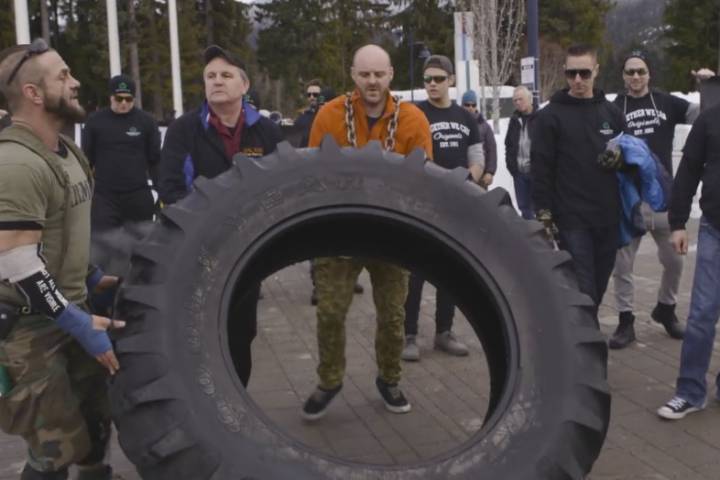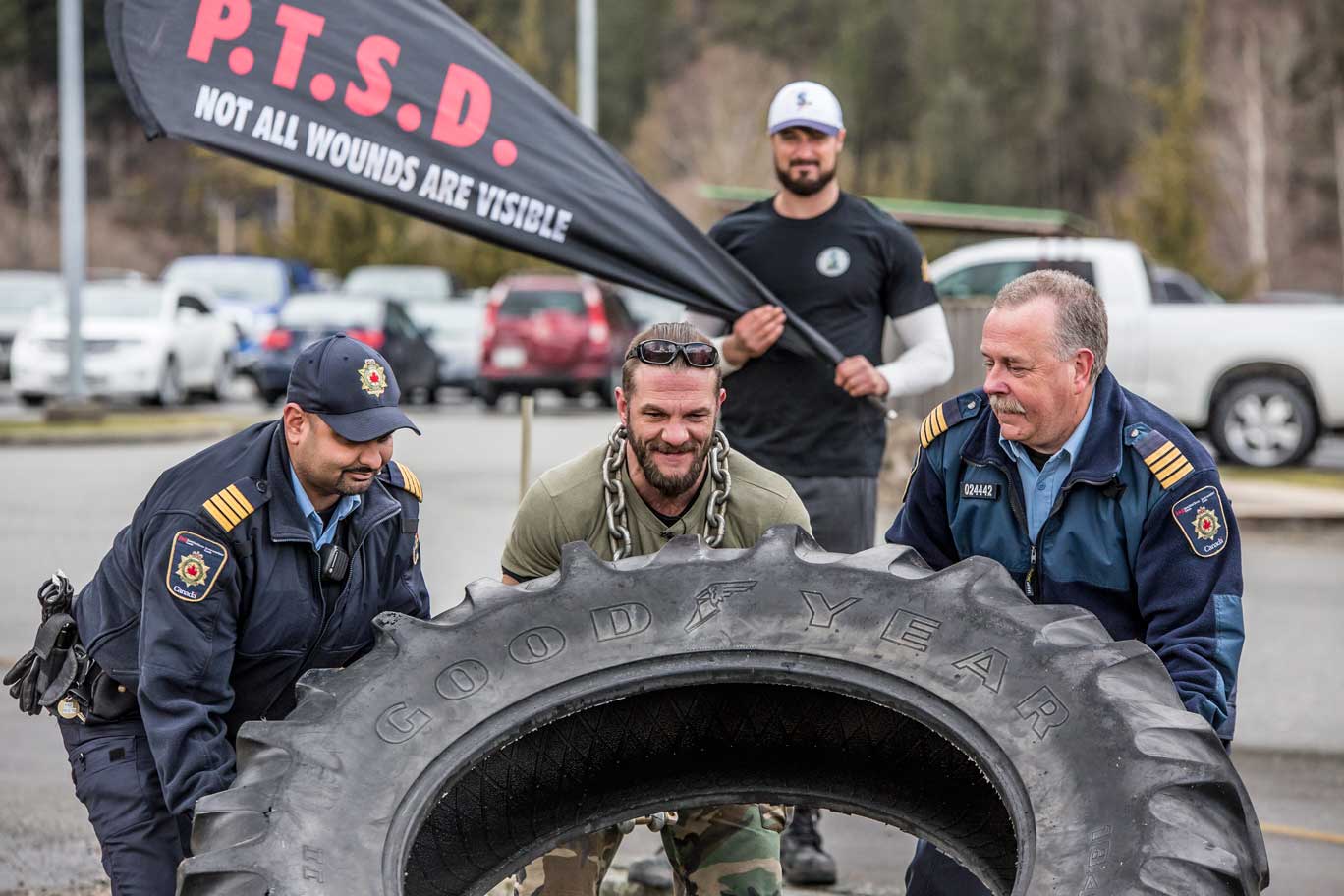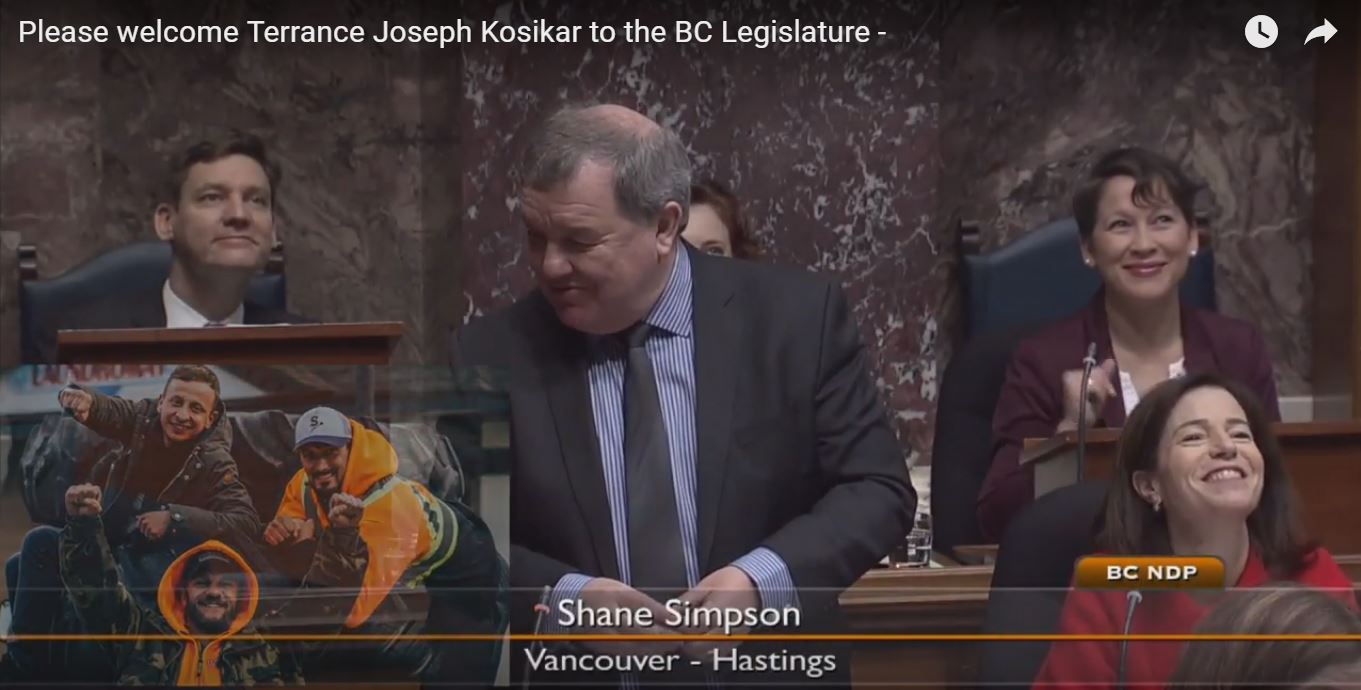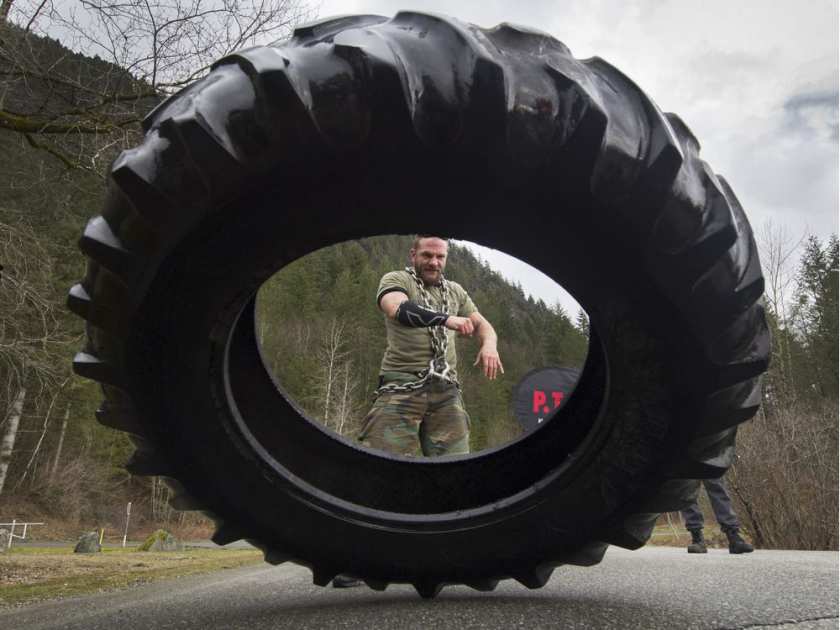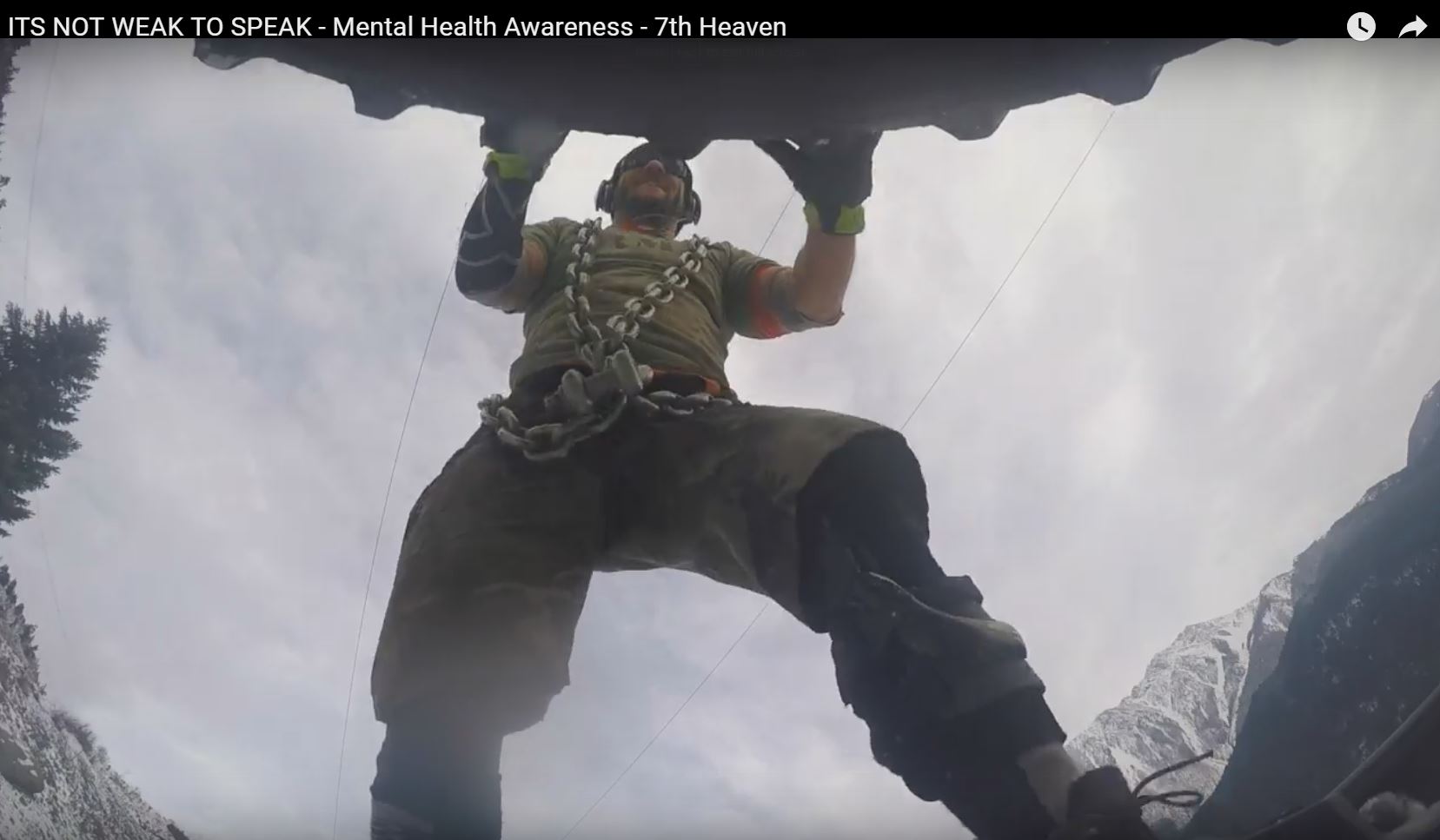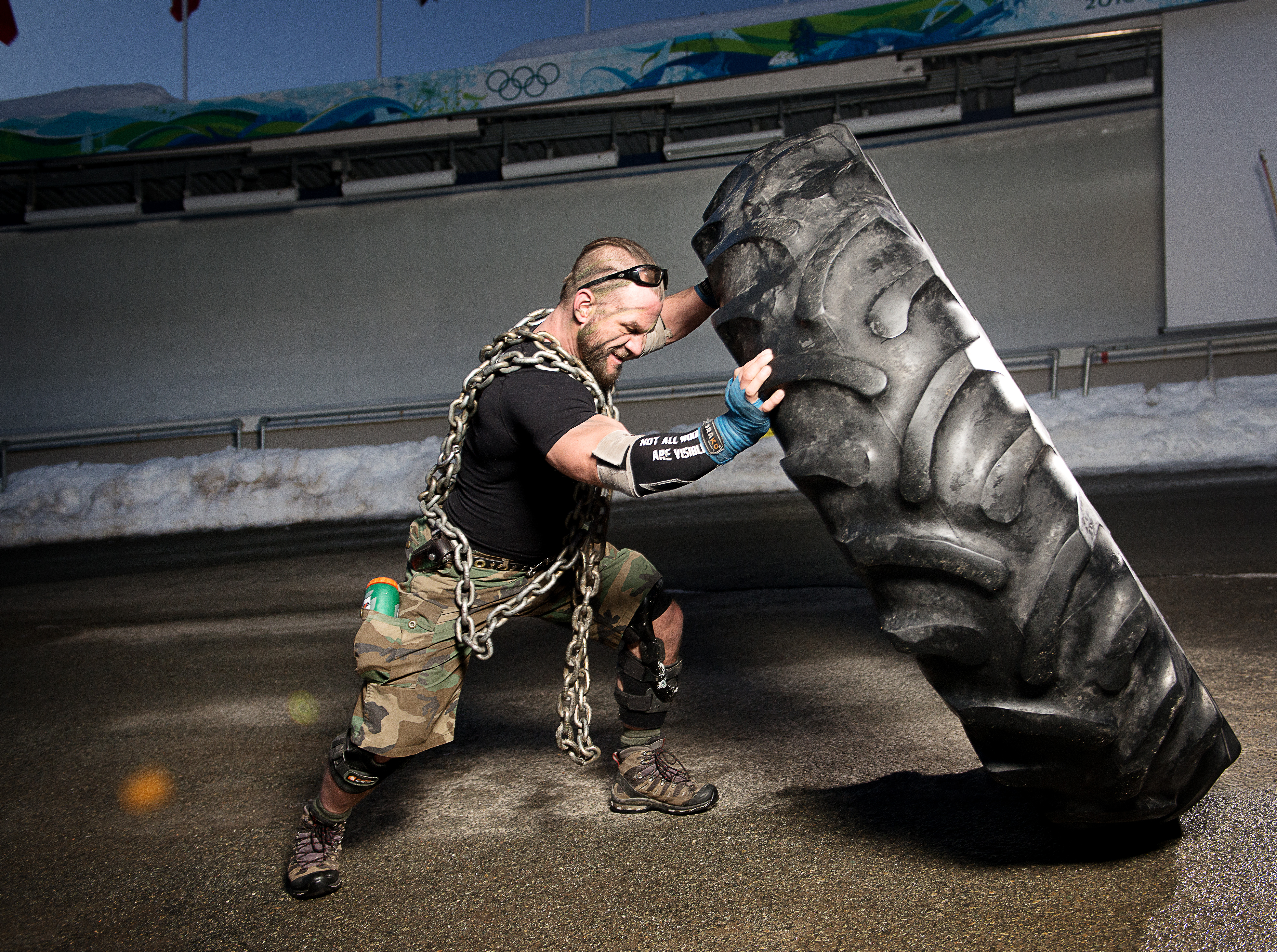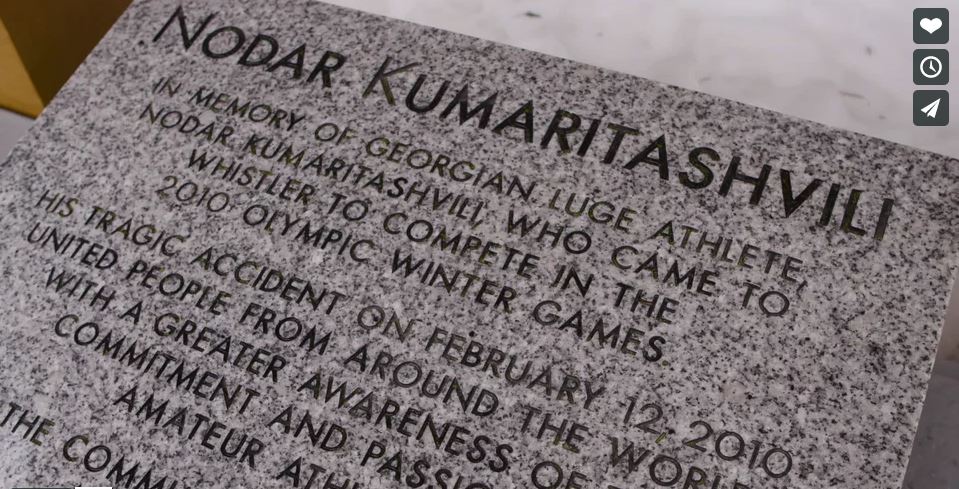A former paramedic is flipping a 400-pound tractor tire through waist-deep snow up a mountain while shackled in 60 pounds of steel chains for a cause that’s very close to his heart.
Forty-five-year-old Terrance Kosikar and a team of his two friends from Australia and Romania have been on their arduous journey to 7th Heaven Summit on Blackcomb Mountain for the last five days and have at least another 1,000 feet left to go.
Kosikar was one of the first responders who tried to revive Georgian luger Nodar Kumaritashvili, who died in a horrific accident the day before the Opening Ceremony of the 2010 Vancouver Olympics.
Since then, Kosikar has suffered from Post Traumatic Stress Disorder (PTSD), ending up with suicidal thoughts and an addiction problem. In the five years after the accident, he lost his job, family and home.
Kosikar has now turned his life around and is hoping to help other first responders suffering from PTSD.
Kosikar is behind the “It’s not weak to speak – Not all wounds are visible” campaign to destigmatize PTSD and bring awareness to Bill M203, which aims to provide support for British Columbia’s first responders affected by PTSD sooner.
“We need the help immediately,” said Kosikar. “We should not have to prove our PTSD happened at work. We are first repsonders and we take the trauma home with us daily. It affects not only us, but our families and our friends. It is unacceptable and our provincial government needs to make changes.”
After Kosikar and his team reach the summit, they will have to flip the same tire for another 1,150 kilometres around B.C. to raise awareness about the campaign.
© 2017 Global News, a division of Corus Entertainment Inc.
Original article can be found here

